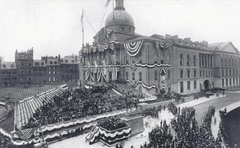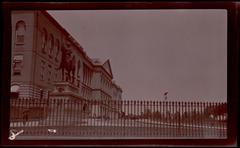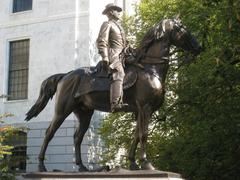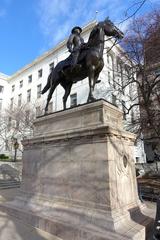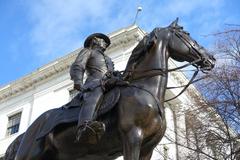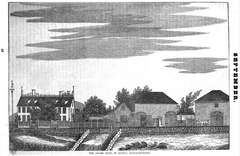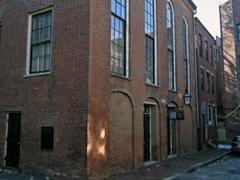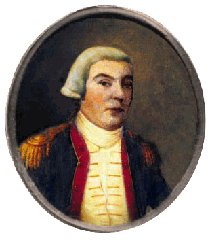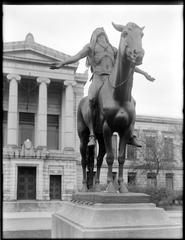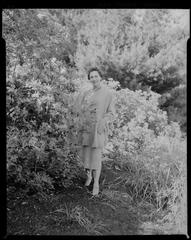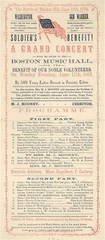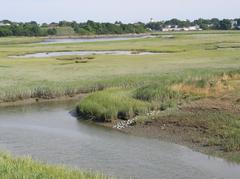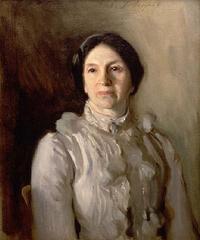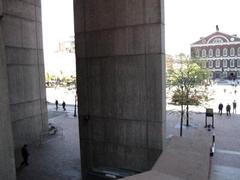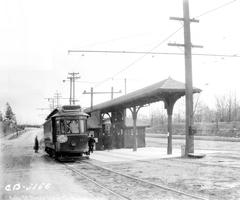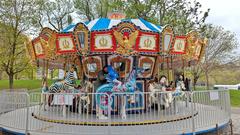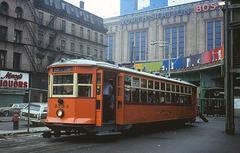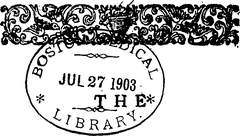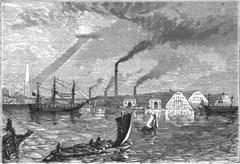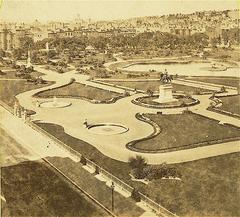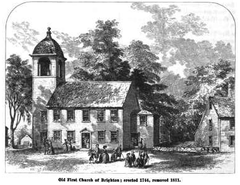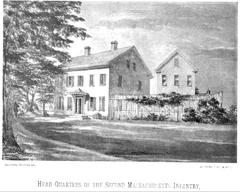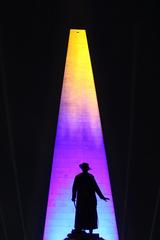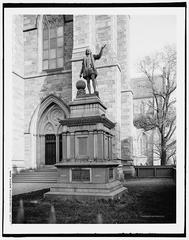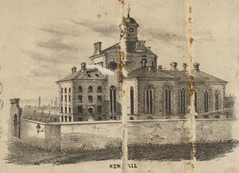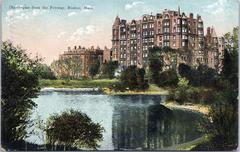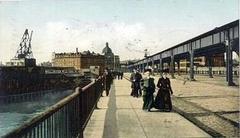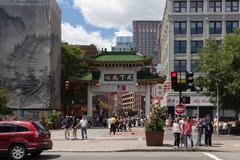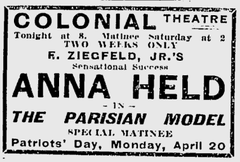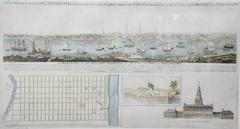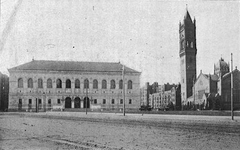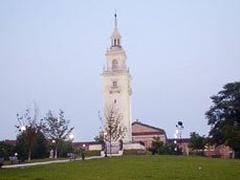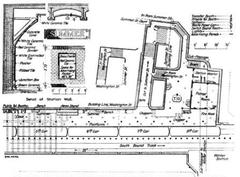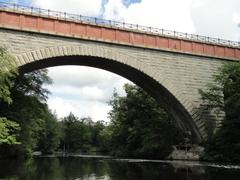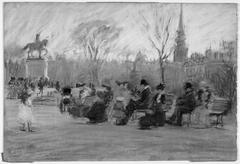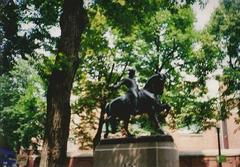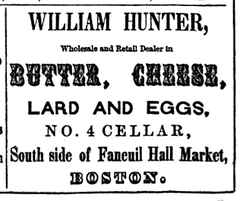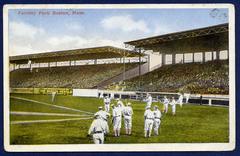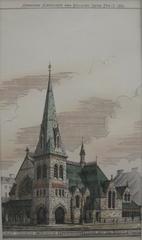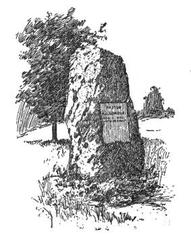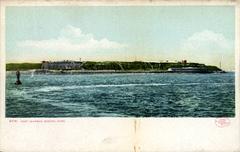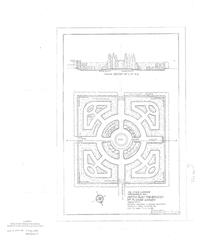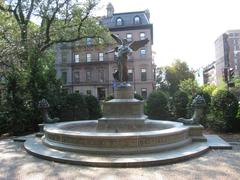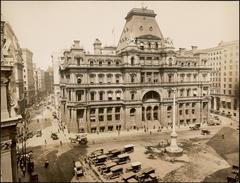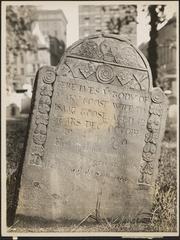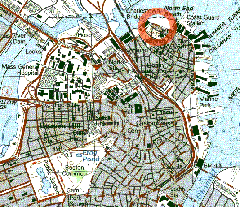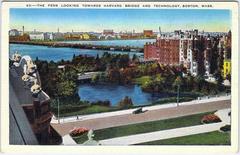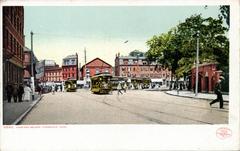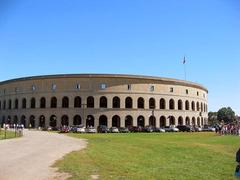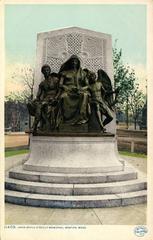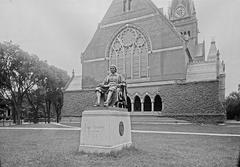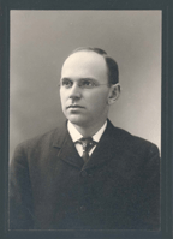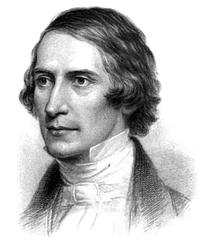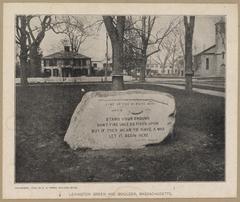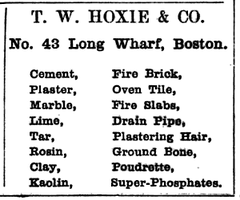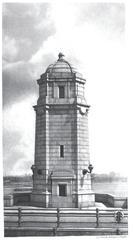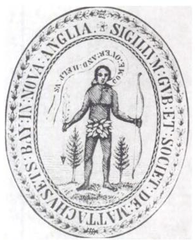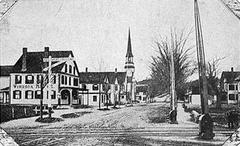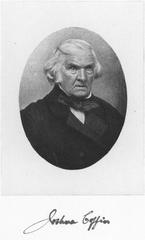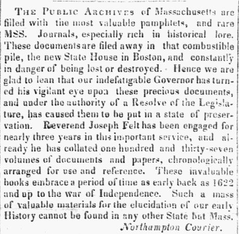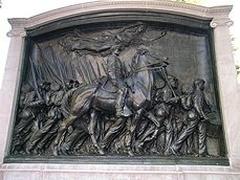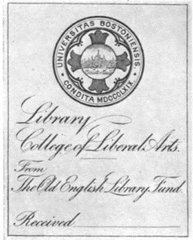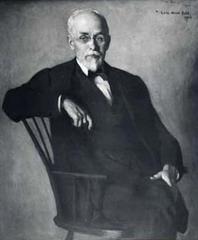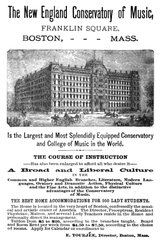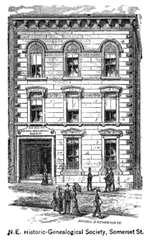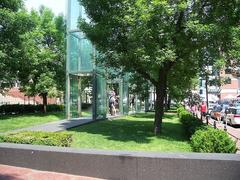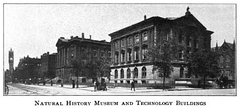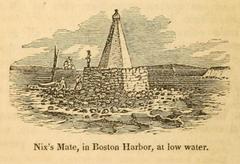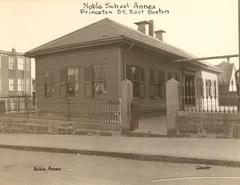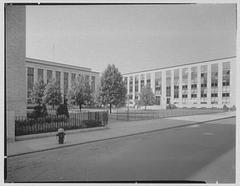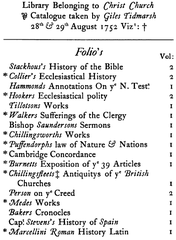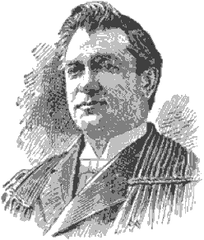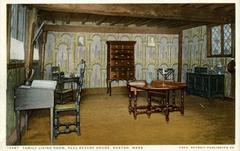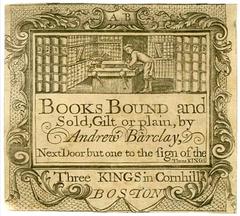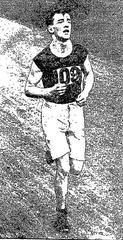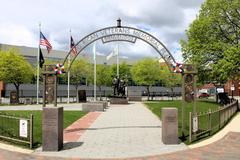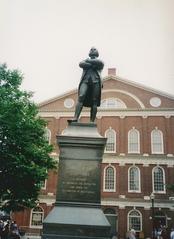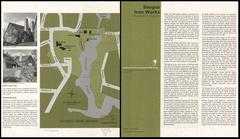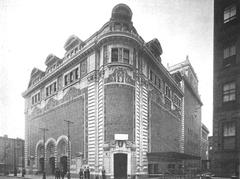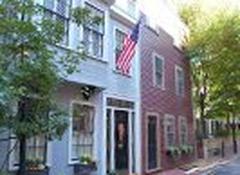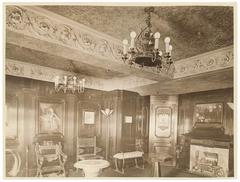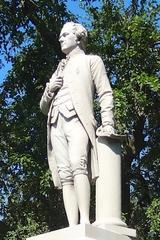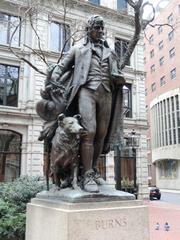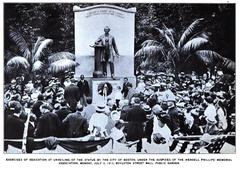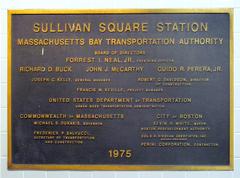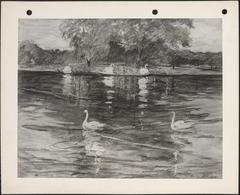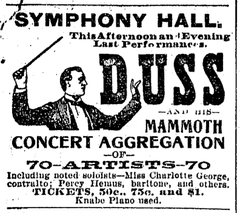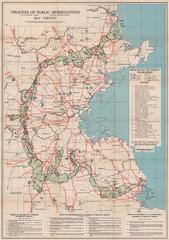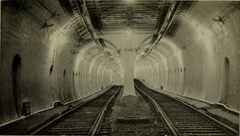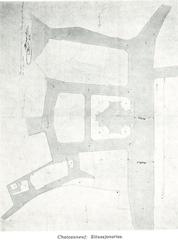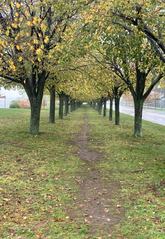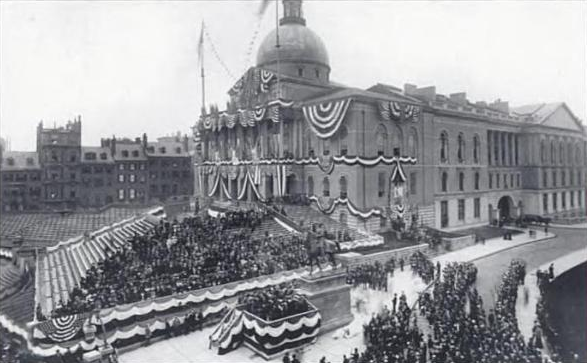
Equestrian Statue of Joseph Hooker, Boston: Complete Visitor Guide, History, and Significance
Date: 15/06/2025
Introduction
The Equestrian Statue of Joseph Hooker stands on the south lawn of the Massachusetts State House in Boston’s historic Beacon Hill neighborhood. Designed by the acclaimed sculptors Daniel Chester French and Edward Clark Potter, this monument honors Major General Joseph Hooker—nicknamed “Fighting Joe”—a prominent but controversial Union leader during the American Civil War. Accessible to the public year-round and free of charge, the statue is both a piece of public art and a gateway to exploring Boston’s broader Civil War history and architectural heritage.
This detailed guide covers all aspects of visiting the statue, from practical information on hours and accessibility to its historical background, artistic features, ongoing debates about commemoration, and tips for enjoying nearby Boston attractions. Whether you are a history buff, art enthusiast, or tourist, the Hooker statue offers a unique perspective on the intersection of art, history, and public memory in Boston.
For further research and trip planning, consult resources such as the Massachusetts State House and Wikipedia: Joseph Hooker.
Location and Accessibility
The Equestrian Statue of Joseph Hooker is prominently located at 24 Beacon Street, Boston, Massachusetts, directly outside the Massachusetts State House. The statue faces Beacon Street on Beacon Hill’s southern slope, putting it within easy walking distance of Boston Common, the Freedom Trail, and other historic landmarks (Free Tours by Foot). The closest MBTA subway stop is Park Street Station (Green and Red Lines), a two-minute walk away.
Accessibility
- Wheelchair and Stroller Access: The area surrounding the statue and the General Hooker Entrance to the State House are paved and accessible to visitors with mobility devices.
- General Hooker Entrance: This entrance, situated to the right of the main gate, is named for the statue and serves as a popular meeting point for tours.
Visiting Hours and Tickets
- Statue: Outdoors and viewable 24/7; free admission, no ticket required.
- State House Tours: The Massachusetts State House is open to the public Monday–Friday, 8:45 am to 5:00 pm. Free guided tours are offered from 10:00 am to 3:30 pm. The building is closed on weekends and state holidays. No tickets or reservations required, but early arrival is recommended during busy periods (Massachusetts State House Official Site).
Historical Background
Origins and Commissioning
Commissioned in the late 19th century, the Hooker statue reflects a national movement to honor Civil War heroes. Massachusetts, proud of its native son, appropriated $55,000 for the monument—an impressive sum at the time. The statue was unveiled in June 1903, joining Boston’s collection of Civil War memorials.
Artistic Collaboration
The monument is a collaborative achievement. Daniel Chester French, famed for the Lincoln Memorial, sculpted Hooker himself. Edward Clark Potter, a renowned animal sculptor, modeled the horse (yeodoug.com). French’s focus on anatomical precision and dignified posture, combined with Potter’s dynamic realism, created a monument that exudes motion and leadership.
- Materials: The statue is cast in bronze and stands 15 feet tall atop a 20-foot granite base.
- Design: Hooker is depicted in military regalia, sitting upright and vigilant, while the horse appears mid-stride, conveying readiness and action (Equestrian Statue.org).
Symbolism
The statue’s grand scale and central placement at the State House underscore Massachusetts’ pride in its Civil War contributions. The monument is used for civic ceremonies and serves as a landmark for visitors and locals alike (Waymarking.com).
Joseph Hooker: The Man Behind the Monument
Born in Hadley, Massachusetts in 1814, Joseph Hooker was a West Point graduate who served with distinction in the Mexican–American War before rising to prominence during the Civil War. As commander of the Army of the Potomac, he implemented organizational reforms and led the Union forces at the Battle of Chancellorsville—a defeat that overshadowed some of his military achievements (Wikipedia: Joseph Hooker). His reputation for charismatic leadership earned him the nickname “Fighting Joe,” though this moniker originally resulted from a typographical error.
Significance and Ongoing Debates
Historical Context
The Hooker statue is part of Boston’s broader tradition of Civil War memorials, including the Robert Gould Shaw Memorial. These monuments were intended to promote unity and honor military service, though Hooker’s mixed legacy sparked debate even at the time of its commissioning.
Controversies
- Inscription Dispute: The original plaque, “A Soldier in the Army that Kept the Nation Whole,” was removed after veterans protested its wording, reflecting tensions over Hooker’s legacy.
- Public Critique: Not all contemporaries admired Hooker; historian Charles Francis Adams Jr. called the statue “an opprobrium cast on every genuine Massachusetts man who served in the Civil War.”
- Modern Perspective: In recent years, as debates over public monuments have intensified, the Hooker statue has been included in discussions about historical memory, representation, and evolving values (The Conversation).
Stewardship
The Boston Art Commission oversees public monuments and works to balance historical preservation with community input, ensuring that monuments like the Hooker statue remain relevant and contextualized (Waymarking.com).
Visiting Experience and Practical Tips
Viewing the Statue
- Accessibility: The statue is outdoors and accessible at all times. The area is paved and suitable for wheelchairs and strollers.
- Photography: The statue is especially photogenic against the State House’s golden dome. For the best photos, visit in the morning or late afternoon for optimal lighting.
- Security: Access to the State House grounds is restricted in some areas since 9/11, but the Hooker statue remains open to the public. Security checks are required for State House entry.
State House Tours
Free guided tours are offered Monday–Friday, 10:00 am–3:30 pm, lasting 30–45 minutes. The tours highlight the history and architecture of the State House as well as key monuments like the Hooker statue (Free Tours by Foot).
Nearby Attractions
- Boston Common: The oldest public park in America, just across the street, with 50 acres of green space.
- Freedom Trail: A 2.5-mile route linking 16 historic sites, including the State House.
- Public Garden: A short walk away, offering scenic beauty and historic monuments.
Visitor Etiquette
- Behavior: As the statue is in a public space, respectful conduct is expected.
- Photography: Permitted and encouraged, but be mindful of pedestrian flow and State House security protocols.
Preservation and Public Art
The statue was surveyed in 1997 by the Smithsonian’s “Save Outdoor Sculpture!” program and undergoes regular maintenance to preserve its bronze and granite structure for future generations.
Frequently Asked Questions (FAQ)
Q: Are there entrance fees or tickets required?
A: No, the statue is outdoors and freely accessible at any time.
Q: What are the best times to visit?
A: Daylight hours are recommended for safety and visibility. For State House tours, visit Monday–Friday between 10:00 am and 3:30 pm.
Q: Is the statue accessible for visitors with disabilities?
A: Yes, the area is paved and accessible. The General Hooker Entrance accommodates wheelchairs and strollers.
Q: Can I take photographs?
A: Yes, photography is welcome.
Q: Are guided tours available?
A: State House tours often feature the statue, but there are no tours dedicated solely to it.
Q: Is parking available nearby?
A: Parking is limited. Public transportation is recommended.
Conclusion
The Equestrian Statue of Joseph Hooker remains a significant cultural and historical landmark in Boston. It offers visitors insight into Civil War history, the evolution of public memory, and the artistry of Daniel Chester French and Edward Clark Potter. Its accessible, central location makes it an ideal stop for tourists and locals exploring Boston’s historic core. For the fullest experience, combine your visit with a State House tour and a walk along the Freedom Trail.
Download the Audiala app for audio tours, and consult the Massachusetts State House and Boston tourism resources for up-to-date information on hours, tours, and nearby attractions.
References and Further Reading
- Wikipedia: Joseph Hooker
- The Equestrian Statue of Major General Joseph Hooker Boston MA (Waymarking.com)
- Visiting the Equestrian Statue of Joseph Hooker (Free Tours by Foot)
- Civil War Monuments Debate (The Conversation)
- Equestrian Statue of Joseph Hooker (Equestrian Statue.org)
- Visiting the Equestrian Statue of Joseph Hooker: History, Design, and Visitor Information (Yeodoug.com)
- Massachusetts State House Official Site
- Boston Official Tourism Site
- Audiala App for Guided Tours
